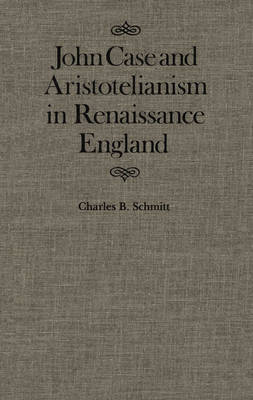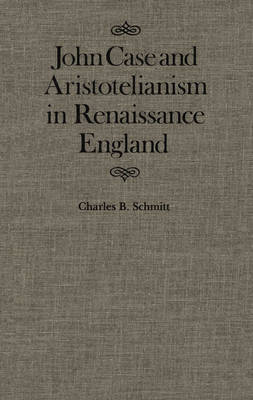
Je cadeautjes zeker op tijd in huis hebben voor de feestdagen? Kom langs in onze winkels en vind het perfecte geschenk!
- Afhalen na 1 uur in een winkel met voorraad
- Gratis thuislevering in België vanaf € 30
- Ruim aanbod met 7 miljoen producten
Je cadeautjes zeker op tijd in huis hebben voor de feestdagen? Kom langs in onze winkels en vind het perfecte geschenk!
- Afhalen na 1 uur in een winkel met voorraad
- Gratis thuislevering in België vanaf € 30
- Ruim aanbod met 7 miljoen producten
Zoeken
Omschrijving
Dr. Schmitt shows that Case was heir to both the traditions of scholastic interpretation of Aristotle and the new humanistic currents, that his Aristotelianism was strongly eclectic, and that he drew heavily upon Renaissance Neoplatonic and other intellectual traditions in compiling well-rounded philosophical manuals adapted to his age. Schmitt argues that, even though Case was the prime representative of peripatetic thought during Elizabeth's reign, he forged strong links with leading figures in such areas of English culture as drama, literature, art, and music, as well as with important ecclesiastical and political figures. He also contends that Aristotelian philosophy had a much more central position in England than has been previously admitted. Case's position in the scholastic revival which marked late sixteenth- and early seventeenth-century English intellectual life is charted, and the historical reality of this revival is firmly established.
Specificaties
Betrokkenen
- Auteur(s):
- Uitgeverij:
Inhoud
- Aantal bladzijden:
- 277
- Taal:
- Engels
- Reeks:
Eigenschappen
- Productcode (EAN):
- 9780773510050
- Verschijningsdatum:
- 1/07/1983
- Uitvoering:
- Hardcover
- Formaat:
- Genaaid
- Afmetingen:
- 147 mm x 231 mm
- Gewicht:
- 657 g

Alleen bij Standaard Boekhandel
+ 344 punten op je klantenkaart van Standaard Boekhandel
Beoordelingen
We publiceren alleen reviews die voldoen aan de voorwaarden voor reviews. Bekijk onze voorwaarden voor reviews.









